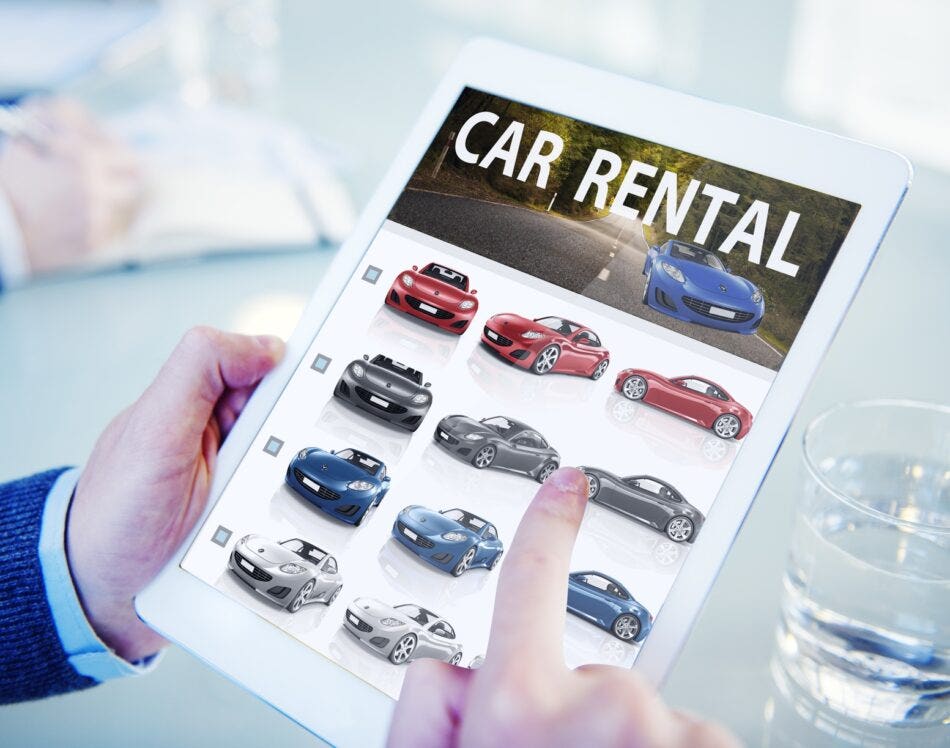Every time you rent a car you’ll be asked “Do you want to pay extra for insurance?” If you answer yes you could be paying as much as $30 per day in addition to the car rental rate. Answer no and you could be on the hook for any damages. Do you need to purchase rental car insurance? It depends on your own insurance coverage.
In the past the general rule of thumb was to decline the extra insurance as long as you had your own personal car insurance policy that included collision coverage. Another option was to pay for the rental car using a credit card that offers car rental insurance coverage. But in the last few years rental car companies have began to require repayment of the loss in value of their rental cars that were were involved in car accidents. Problem is these extra charges are often not included in your personal car insurance coverage.
Here are six factors to help you decide whether or not you need to pay for the rental car insurance:
Factor #1. What does your personal car insurance actually cover?
Understand what your car insurance covers before you get to the rental desk. Steve Kee of the Insurance Bureau of Canada suggests paying close attention to your coverage limits—the total amount that your insurance policy will pay out should you get into an accident. Then ask yourself: Is this enough to cover the cost of repairing or replacing the rental car (and any other vehicle that may be involved in the accident)? For instance if you only pay for a basic policy because you drive a 10-year-old sedan than that’s the policy you’ll use even if you rented and got into an accident in a Mustang convertible rental car. It’s a good bet that the rental will cost more in present day value than your aging family ride—and this could leave you on the hook for the difference.
Talk to your broker to see what your personal car insurance policy covers when it comes to rental cars.
Factor #2. Consider getting an add-on coverage for rental cars.
There is an endorsement or add-on coverage known as an SEF27 which allows you to transfer your personal car insurance coverage and deductible to a non-owned vehicle such as a rental car. If you don’t already have this on your policy you can talk to your broker to add it.
The extra coverage means you’ll be protected while driving a vehicle that isn’t yours. Check to ensure that there are no time limits.
Given that the rental car company’s liability waiver coverage can cost up to $30 per day while the SEF27 rider can cost as little as $20 per year this coverage could be worth it for you.
Factor #3. Do you have coverage through a credit card provider?
Many credit cards offer benefits such as insurance coverage for rental cars if you pay for the car with the credit card. The coverage offered through cards varies though and you should understand it before you depend on it. Call and ask about the extent of coverage you have including if it includes third-party liability what the policy limits are and if there are any restrictions or exclusions.
Factor #4. Are there lots of fees to pay?
Another reason why it may make financial sense to pay for the car rental insurance is if the company charges a lot of incremental additional fees. For instance some Toronto car rental agencies will charge you the car rental fee for each day that the car rental car is at the mechanic. Yet many Calgary car rental companies may not add this charge even under the same circumstances. Quite often all those extra fees are waived if you take the daily insurance from the car rental company. Kee explains that this coverage “is not so much insurance as it is an agreement between renter and the company that says if the car is damaged or stolen the renter won’t be liable.”
Factor #5. Are you going somewhere exotic or driving something fancy?
Believe it or not coverage isn’t uniform across the world and across makes and models of cars. For instance some exotic or sports cars are simply excluded from all insurance coverage—both your personal car coverage as well as the credit card coverage. The same restriction can also apply to large vans trucks or trailers. It’s one reason why truck rental companies such as U-Haul offer rental insurance agreements that cover both the rental truck and the contents inside.
In this situation it may be best to go with the insurance the rental company is offering.
Factor #6. Are you renting a car for business?
This is a potential quagmire of confusion. That’s because your personal car insurance won’t cover business-related expenses including expenses incurred in an accident in a rental car used for business purposes. If this is your situation talk to your employer. The company coverage may actually cover you and the rented vehicle under their general liability coverage and if not you’d be wise to pay for coverage through the car rental agency.
Things to keep in mind when renting a car.
Whatever decision you make ensure you’re informed. Understanding how your own insurance and rental car insurance works is essential.
Remember that serious motor vehicle accidents and offences impact your driving record which plays a key role in establishing your annual premiums.
In the end none of us want to consider the possibility of an accident but you are ultimately responsible for your car rental just be sure to do a bit of due diligence before declining or accepting the insurance offered by the car rental agency. Talking to your broker is a great first step.

